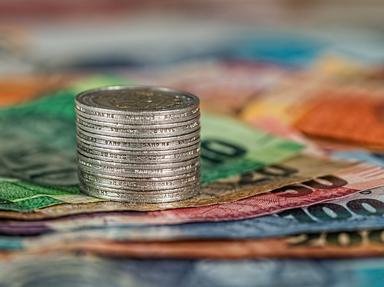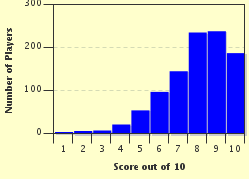Quiz Answer Key and Fun Facts
1. The bank in Germany gave me Euros, which feature the same design for all countries. The friend I was visiting, however, gave me some old bills that featured famous Germans. Who is the mathematician and physicist whose theoretical work in electricity and magnetism formed the basis for two of James Clerk Maxwell's four famous equations?
2. At my next stop, I received some 1000 Lek bills, featuring the image of the author Pjeter Bogdani (1630 - 1689), famed as the first to write a substantial work in his native language. What country was this, which uses the lek (or leke) as its currency?
3. Off again, I flew into Sheremetyevo International airport, where I exchanged my money for some 1000 ruble notes with a picture of a statue of Yaroslav I the Wise on them. I used them to rent a car, and drive into the centre of the city along the Leningradskoe Highway. What national capital was I visiting?
4. In a museum in Tehran, I purchased this (very old) 1000 Rial bill with an image of Mohammad Reza Pahlavi on it as a souvenir. By what title is this man, who was forced to flee his native country in 1979 after the Ayatollah Khomeini led a successful Islamic revolution, most commonly known?
5. Mohammed Zahir Shah features on the bill I received at my next stop. The last Shah of his country, he lived in exile in Italy following a coup in 1973, but returned in 2002 following the fall of the Taliban, and was given the honorific title 'Father of the Nation' until his death in 2007. What country was I visiting?
6. In Pakistan, I found that all the different bills I accumulated during my visit featured an image of Muhammed Ali Jinnah, whose tomb is shown here. What is the unit of currency in Pakistan?
7. This 1964 Rupiah note from Indonesia featured the man who was the country's first president, serving from 1945 to 1967. Who was this leader?
8. A friend in the next country I visited presented me with a 500 yen bill printed in the year I was born. This very old bill features the image of Iwakura Tomomi, a 19th century statesman involved in the Meiji Restoration. Of what country is this bill a souvenir?
9. In Colombia, I collected a bill that featured the poet Jose Asuncion Silva. The note is worth 5000 of what unit of currency?
10. In Washington, D. C. I collected some bills of a local currency known as the Potomac. Which of these is NOT a *MAN* pictured on some denomination of Potomac?
Source: Author
looney_tunes
This quiz was reviewed by FunTrivia editor
WesleyCrusher before going online.
Any errors found in FunTrivia content are routinely corrected through our feedback system.

